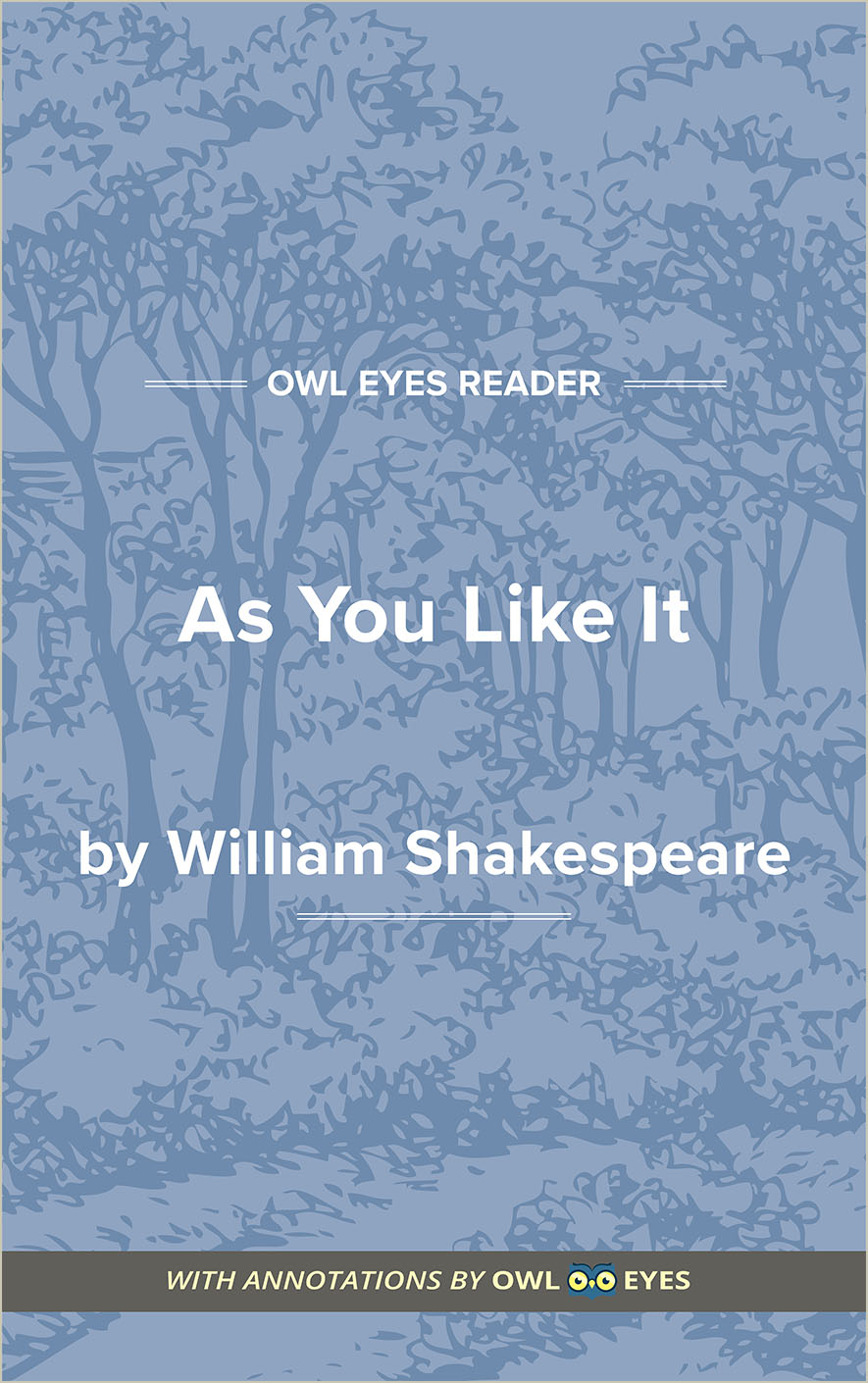Analysis Pages
Plot in As You Like It
Plot Examples in As You Like It:
Act I - Act I, Scene 1
🔒"My brother Jaques he keeps at school..." See in text (Act I - Act I, Scene 1)
Act I - Act I, Scene 2
🔒"No; when Nature hath made a fair creature, may she not by Fortune fall into the fire?..." See in text (Act I - Act I, Scene 2)
Act I - Act I, Scene 3
🔒"Would he not be a comfort to our travel? ..." See in text (Act I - Act I, Scene 3)
Act II - Act II, Scene 3
🔒"O, what a world is this, when what is comely Envenoms him that bears it! ..." See in text (Act II - Act II, Scene 3)
Act II - Act II, Scene 4
🔒"Alas, poor shepherd! searching of thy wound, I have by hard adventure found mine own...." See in text (Act II - Act II, Scene 4)
Act IV - Act IV, Scene 1
🔒"you were better speak first..." See in text (Act IV - Act IV, Scene 1)
"Good day, and happiness, dear Rosalind! ..." See in text (Act IV - Act IV, Scene 1)
Act IV - Act IV, Scene 3
🔒"Well then, take a good heart, and counterfeit to be a man. ..." See in text (Act IV - Act IV, Scene 3)
Act V - Act V, Scene 2
🔒"I have left you commands...." See in text (Act V - Act V, Scene 2)
"Ay, and greater wonders than that. ..." See in text (Act V - Act V, Scene 2)
"And you, fair sister. ..." See in text (Act V - Act V, Scene 2)
"Neither call the giddiness of it in question, the poverty of her, the small acquaintance, my sudden wooing, nor her sudden consenting; but say with me, I love Aliena;..." See in text (Act V - Act V, Scene 2)
Act V - Act V, Scene 4
🔒"[Exeunt ROSALIND and CELIA.] ..." See in text (Act V - Act V, Scene 4)

